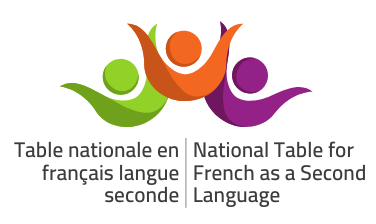Project Overview
- Research topics
- Region: National
- Project Overview

Project status
- Completed :
- April 2020-March 2022
Partner organization(s)
Association des collèges et universités de la francophonie canadienne (ACUFC)
Objective 2036: French-language education, the bedrock of linguistic duality in Canada
In partnership with post-secondary institutions (PSIs) and organizations specializing in education, the ACUFC proposed a multi-pronged systemic approach to address the challenges of recruiting and retaining French-language teachers (FFL/FSL) outside Quebec. The project targeted four groups:
- High school students enrolling in a teacher training program
- Post-baccalaureate university students pursuing their studies, and graduates from college programs
- Adults looking to change careers
- Foreign-trained applicants.
This multi-year, Canada-wide project took place over two years and included three main focus areas:
Focus area 1: Attracting and selecting applicants
Focus area 2: Pre-service training for French as a first language (FFL)/French as a second language (FSL) teaching
Focus area 3: Professional development
The project proposed a series of webinars, conferences and environmental scans in specific areas of intervention for each of the focus areas and the sharing of best practices. It also included the development and funding of pilot projects under the various action areas for each of the groups. These deliverables, which were largely led by the PSIs, provided a pan-Canadian picture of the situation and established benchmark databases for measuring the progress of the various initiatives and exploring new applicant recruitment and retention strategies based on the analysis of the research and deliverables.
The pan-Canadian virtual collaboration was supported by an investment in the human and technological facilitation of working teams and expert groups. Collaborative and co-creative approaches to achieving the planned outputs were supported by a significant exchange and consultation effort. This cross-cutting strategy involved establishing a collaborative dynamic, evaluating the scope of the tools and methods selected, and conducting action research to develop new knowledge on virtual collaboration.
The Objectif 2036 project contributed to the recruitment and retention of the best applicants in Canada and abroad for teaching FFL and FSL. The ACUFC also used this project to develop a strategic vision to help achieve the Action Plan for Official Languages - 2018-2023 target of increasing the national bilingualism rate from 17.9% to 20% by 2036. Its role was to provide ongoing strategic oversight, guide partners, mobilize knowledge and nurture the sharing and dissemination of best practices to address the gaps identified in the short, medium and long term. The ACUFC also planned to measure collective progress and consolidate the overall picture of initiatives being undertaken and coordinated across Canada.
Targeted Results
Main takeaways (learnings)
- There is a willingness on the part of faculties of education to undertake activities (e.g., taking stock, sharing best practices, organizing webinars and videoconferences).
- Faculties are experimenting with the scope of deliverables on a pan-Canadian scale and testing inter-provincial pilot projects.
- Faculties have demonstrated a willingness to collaborate.
- The project has triggered a certain amount of knowledge mobilization, enabling researchers to network more effectively.
Potential/desired collaborations
- For the added value of collaboration (exchanges, consultation, sharing of best practices).
- To avoid duplication of effort and resources (economies of scale).
- To raise awareness of the reality of faculties of education across Canada.
- To learn about projects funded by ministries.
- For access to data.
- To learn about new initiatives.
- To raise awareness of the reality of recruiting and retaining FFL and FSL teachers across Canada.
- To collaborate on data exchanges.
- To establish links and projects with faculties of education and to share knowledge (e.g.: professional development).











